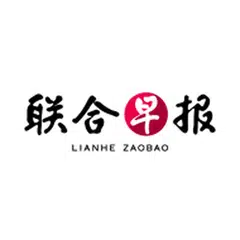From electric blankets to natural gas: Europe's dependence on China for winter heating
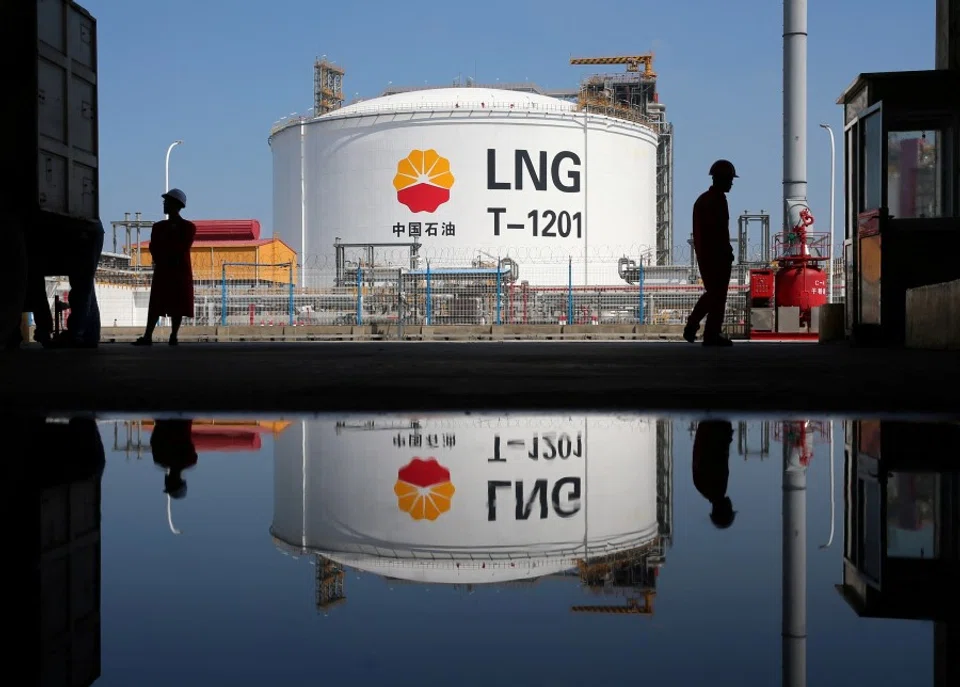
The war in Ukraine has led to a shortage of natural gas and skyrocketing energy prices in Europe. Donning high-necked wool sweaters, French President Emmanuel Macron has urged the French people to save energy to get through winter, while over the past few months the locals have sought out cost-effective, energy-efficient heating facilities to prepare for the cold temperatures. China-produced heating devices such as electric blankets have been in high demand, with export growth exploding this year.
Europe's 'hot' electric blankets and thermal stockings
Data from Guangzhou customs reported by China News Service on 19 October indicate that the export of heating appliances from Guangdong - a key producer of home appliances in China - exceeded 1.16 billion RMB (US$158.7 million) in the first eight months of this year, an increase of 6.5% year-on-year, with exports mainly bound for European countries such as Germany, Italy and Spain.
One manufacturer of electric blankets in Dongguan, Guangdong, saw sales triple year-on-year, its best performance in the past five years.
Data from China's General Administration of Customs show that in July, imports of China-produced electric blankets to the European Union (EU) grew by 150% month-on-month to reach 1.29 million units, with many importers placing additional orders for the heating devices.
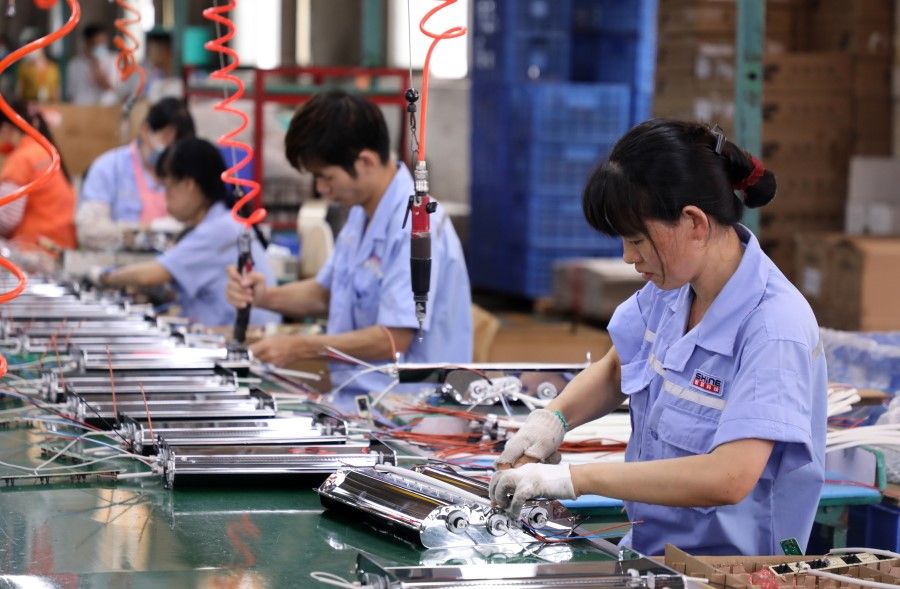
And in the first seven months of this year, China exported US$33.4 million worth of electric blankets, leading other home appliances with a growth of 97% year-on-year, while the export value of electrical heating appliances grew by 23% year-on-year.
According to figures from the China Chamber of Commerce for Import and Export of Machinery and Electronic Products, China exported US$497.53 billion worth of heating devices to Europe in the first eight months of this year, a growth of 14.35%. In August alone, 22.54 billion units valued at US$70 billion went to the European market.
And it is not just traditional heating devices such as electric blankets that are flying off the shelves. The thermal stockings that are trending in China have also become a hot item in Europe. Figures from the cross-border e-commerce platform AliExpress show that in the first half of October, sales of the stockings have grown by 131% month-on-month, with most orders coming from the Netherlands, Germany and France.
The high demand for heating devices even moved the market, with several listed companies that sell heaters and other devices gaining market attention. Caihong Group, a leading producer of electric blankets, froze its share prices on 21, 22 and 28 September, after showing growth of 10%. Since 21 September, the share prices of this established company have grown by 47.41%.
China is highly dependent on natural gas imports from Russia and the US, but the weak domestic demand for energy this year has led to an excess supply, which has in turn been re-exported to Europe.
China reselling natural gas from Europe
China and Europe have been engaged in a bigger and more important energy deal than the retail of heating devices ahead of this winter - the reselling of natural gas, a key fuel for central heating.
Europe's natural gas imports are transported mainly through pipes or sea freight. Due to costlier sea freight costs and port facilities fees, more than 70% of natural gas to Europe is imported via pipes. Of this, piped gas from Russia accounts for about 40%.
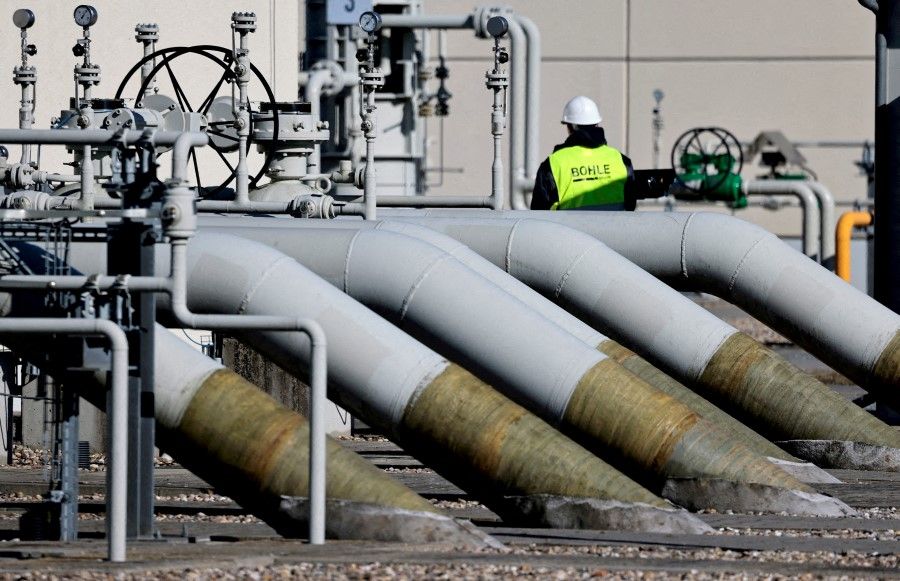
But since the war in Ukraine began, Russia's supply of natural gas to Europe is at its lowest in 40 years. Europe's hope of getting natural gas from Russia through the pipeline for the winter is further dashed with the "unprecedented" damage to the Nord Stream pipeline in September which could be due to explosions.
Meanwhile, China is highly dependent on natural gas imports from Russia and the US, but the weak domestic demand for energy this year has led to an excess supply, which has in turn been re-exported to Europe.
Figures show that in the first half of this year, Europe's imports of liquid natural gas (LNG) went up by 60%. Over 4 million tonnes of LNG has been resold from China to Europe, accounting for about 7% of Europe's imports.
In August, Chinese media reported that energy giant Sinopec Group has exported 45 cargoes of natural gas at 3.15 million tonnes to the international market.
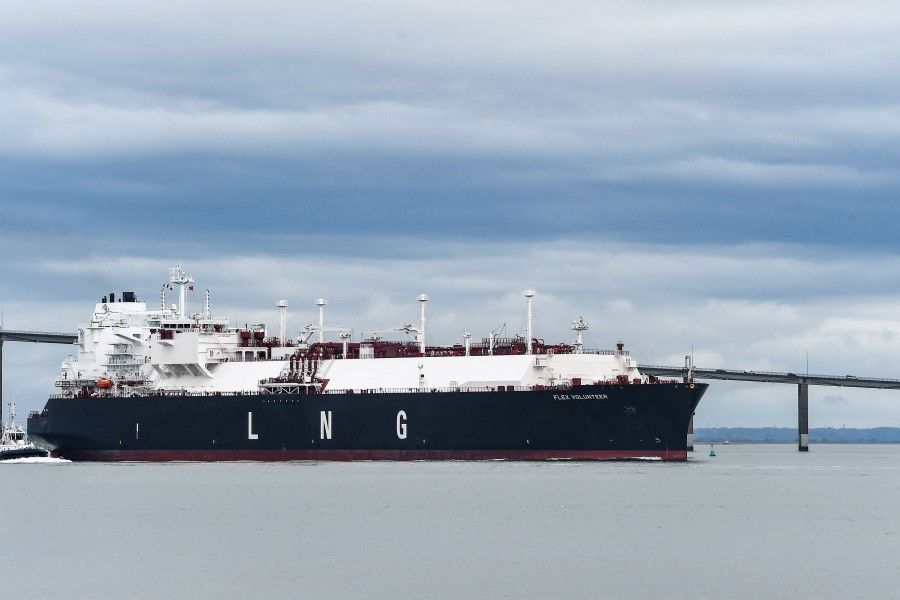
At the same time, demand for LNG tankers, which are specialised ships that transport LNG at -163 degrees Celsius at atmospheric pressure, has jumped in Europe. China is seeing a record-breaking increase in orders for these key logistic facilities in the LNG supply chain.
According to a department head at China State Shipbuilding Corporation (CSSC), some companies in China and South Korea have taken orders for large LNG tankers scheduled beyond 2027.
Following the Nord Stream pipe explosion, LNG tankers for sea transport have been in short supply with 139 new orders placed globally this year for large LNG tankers, far exceeding the previous years and at record prices.
According to a department head at China State Shipbuilding Corporation (CSSC), some companies in China and South Korea have taken orders for large LNG tankers scheduled beyond 2027. Currently, CSSC subsidiary Hudong-Zhonghua Shipbuilding has taken orders for 33 large LNG tankers, of which 26 are from this year.
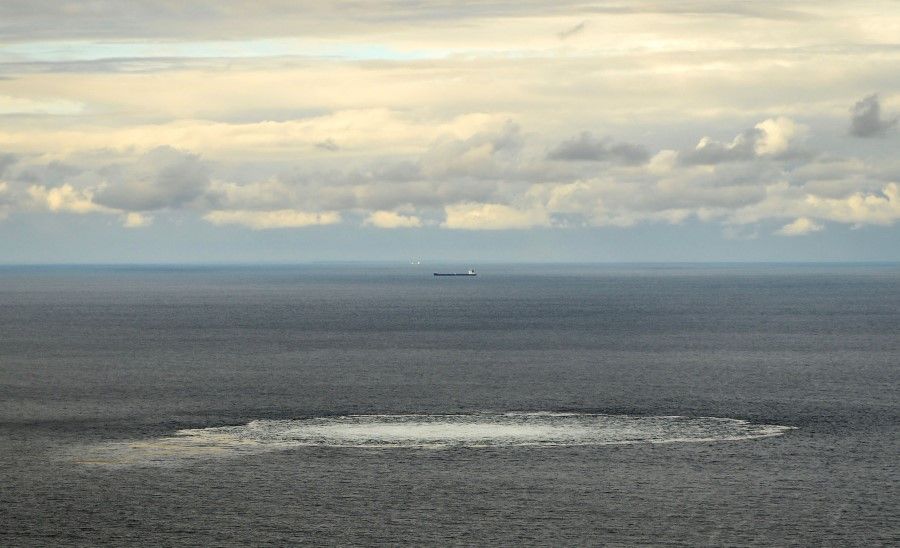
However, Bloomberg quoted a source saying that to ensure that China has enough to keep warm during the coming winter, the National Development and Reform Commission has instructed PetroChina, Sinopec and China National Offshore Oil Corporation to stop reselling LNG to Europe and Asia.
Unlike ordinary heating devices such as electric blankets, the factors involved in natural gas deals between China and Europe are much more complex.
"If Europe wants to revive the economy and maintain livelihoods amid the dual crisis of the pandemic and energy shortage, stepping up cooperation with China is not optional." - Ding Chun, Director, Centre for European Studies, Fudan University
According to research data, there is no global price for natural gas. It is not a regular commodity, and only a third of LNG globally is shipped by sea, of which at least 80% is earmarked for long-term deals; only a small proportion is tradeable with movable prices. The limited supply pool and price mobility mean that geopolitical factors have a significant impact on prices.
Ding Chun, director of the Centre for European Studies at Fudan University, told state media Global Times, "If Europe wants to revive the economy and maintain livelihoods amid the dual crisis of the pandemic and energy shortage, stepping up cooperation with China is not optional."
Europe seeking a balance between trade and politics?
However, in recent years, there has been friction between China and Europe on issues of human rights, Xinjiang and Hong Kong. Furthermore, China has refused to publicly denounce Russia's actions in the war in Ukraine. China's continued deepening of energy relations with Russia amid Western sanctions on the latter has disappointed European countries and aggravated China-Europe tensions.
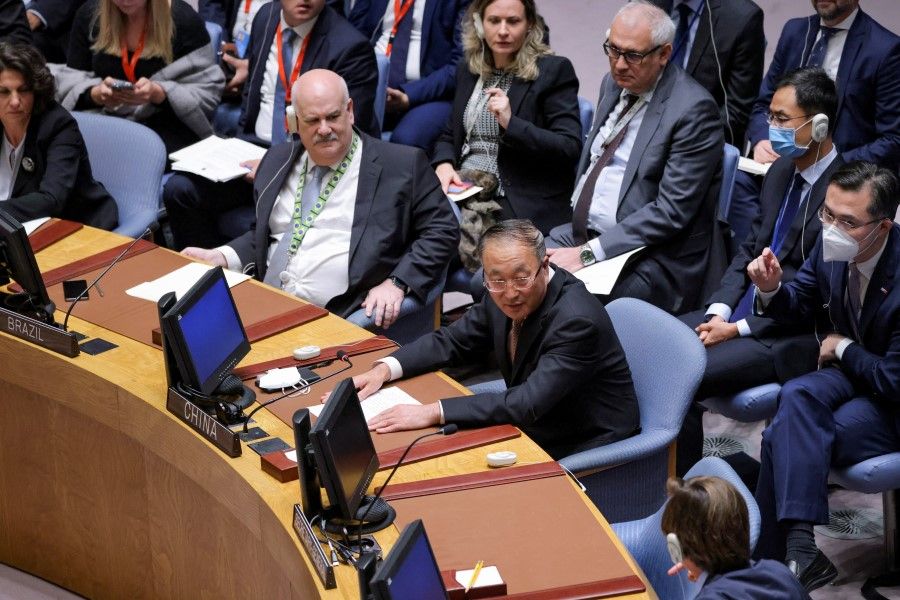
In a virtual summit in April, the leaders of the EU and China were at odds on the Ukraine issue, with Europe pressuring Beijing not to provide economic or military support to Russia. European officials warned that Beijing's support or refusal to criticise Russia could lead to lasting damage to bilateral relations.
On 15 September, following the G7 trade ministers' meeting, German Minister for Economic Affairs Robert Habeck said that the group of countries had agreed to take a tougher, more coordinated stance towards China when it comes to trade.
Habeck said that Germany's "naivety toward China is over... The time when one said 'Trade, no matter what', regardless of the social or humanitarian standards... is something we shouldn't allow ourselves anymore."
In an earlier interview with Reuters, Habeck revealed that the German federal government was working on a new trade policy with China to reduce dependence on Chinese raw materials, batteries and semiconductors.
"Europe cannot decouple from China, and vice versa." - Jörg Wuttke, President, EU Chamber of Commerce in China
Speaking at the World Economic Forum on 26 May, German Chancellor Olaf Scholz said China's economic power should not stop Germany from criticising human-rights violations in Xinjiang, and German companies should do more to diversify their supply chains and export markets.
However, at the German Mechanical Engineering Summit in Berlin on 11 October, Scholz said that he was firmly against decoupling, stressing that it would be the "wrong answer". However, he also repeatedly called on German companies not to be too economically dependent on China.
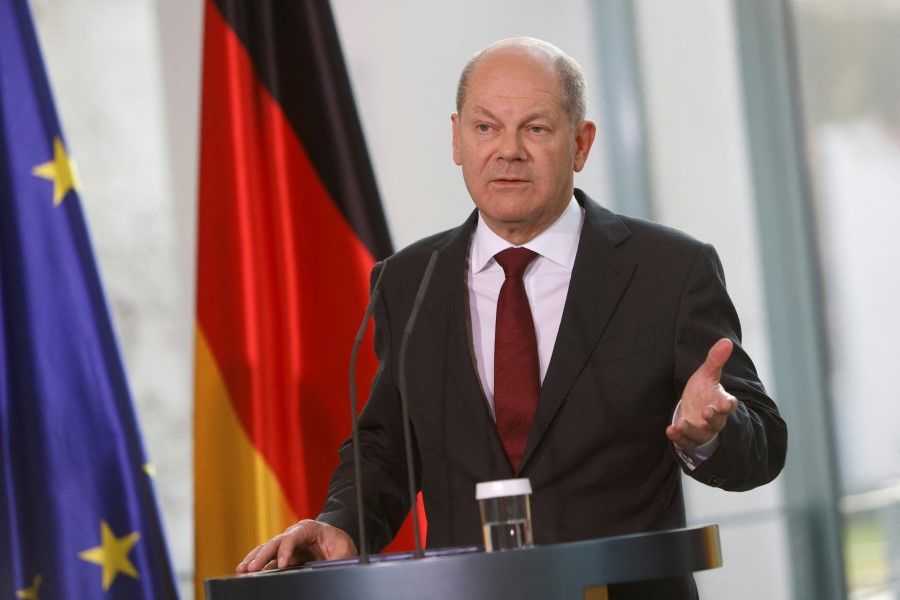
Amid European calls to decouple, president of the EU Chamber of Commerce in China Jörg Wuttke said in September that Europe cannot decouple from China, and vice versa.
He stressed that Europe does not just need China for trade and investment, but needs to engage with China even more in areas of carbon neutrality, equipment, software and processes.
Indeed, Europe is stuck between its hopes of moving into the large Chinese market and its criticism of China for violating human rights as well as its neutral political stand on the war in Ukraine.
Furthermore, there are wide differences in trade volume with China among European countries; it is difficult for the 27 EU countries to reach a consensus on China when each has its own considerations.
According to reports by AFP and South China Morning Post, a strategic document released by the EU diplomatic body this month shows that the EU seeks a balance between the requirements of dialogue, work, trade and negotiation, and countering Beijing. The document also said that handling Europe-China relations will be a key factor in the EU's future economic and geopolitical strategic security.
Amid the pandemic and energy crisis, this winter will not be easy for Europe. From electric blankets to natural gas, Europe is reminded that their lives and economies are tied to China. Balancing the political stand and the people's economy will be a challenge.
On 20-21 October, a European summit was held in Brussels to discuss the war in Ukraine and the rising energy prices in Europe. However, to date, EU leaders are still struggling to find practical solutions for the energy crisis and maintain a united front against Russia. The same could be said of China, and it seems like Europe and China will have to continue to work together amid differences for some time to come.
This article was first published in Lianhe Zaobao as "下午察: 从电热毯到天然气,欧洲要靠中国过冬?".
